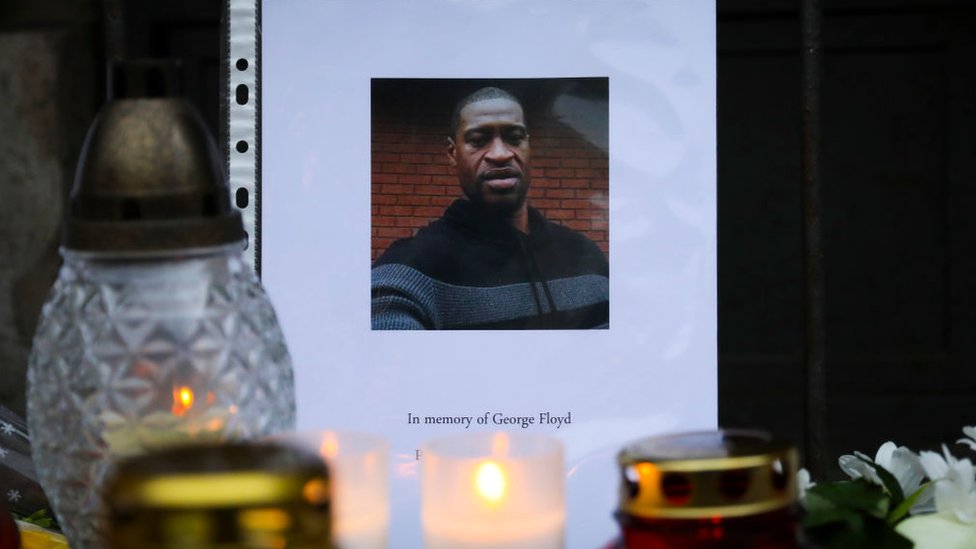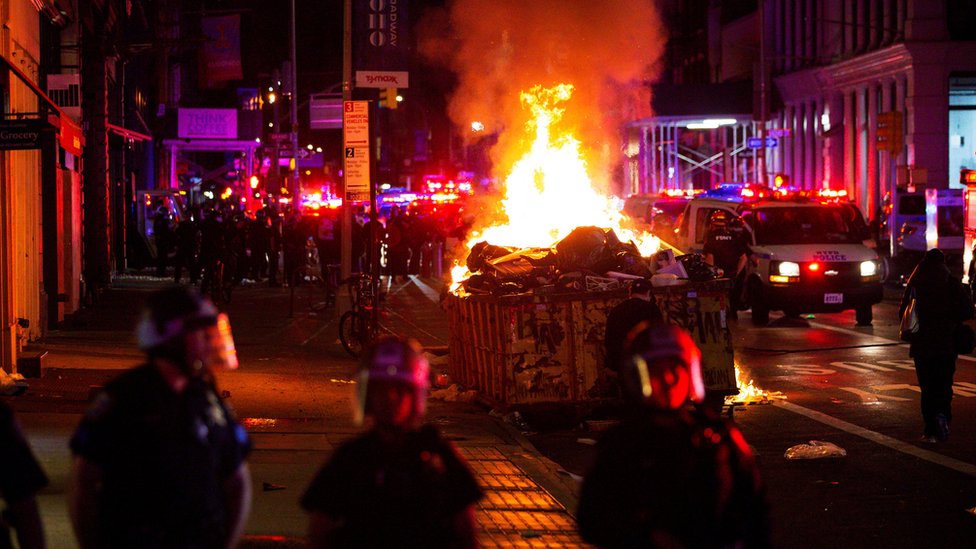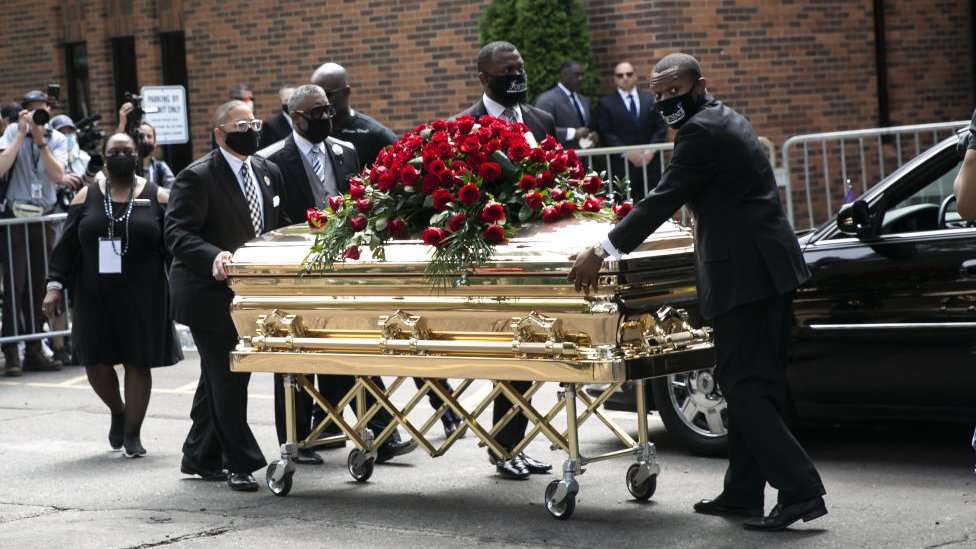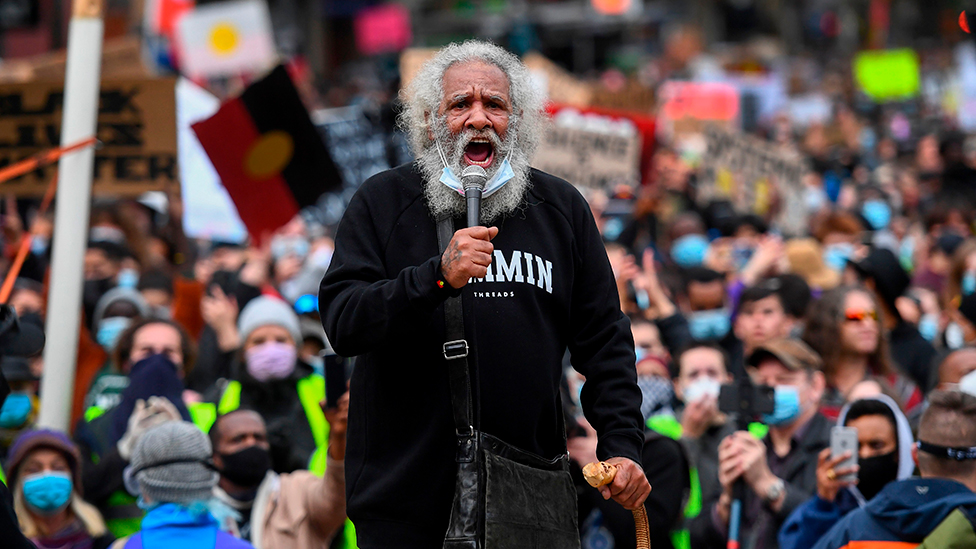Black Lives Matter: Public to decide on HM Stanley statue in Denbigh
- Published
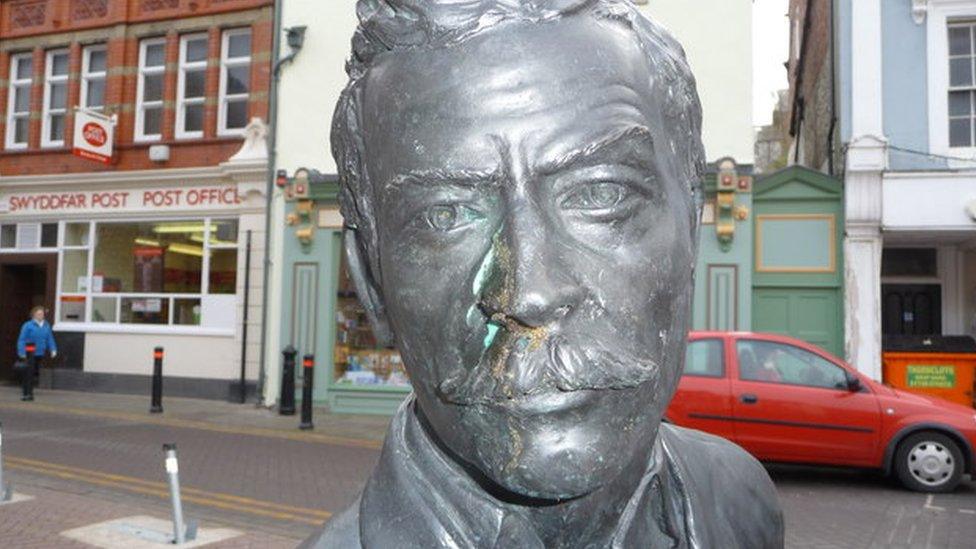
The statue of Henry Morton Stanley was installed in Denbigh town centre in 2010
Councillors have voted to consult the public on removing a statue honouring a Victorian adventurer who opponents claim had links to slavery.
A petition to remove the statue of Henry Morton Stanley from Denbigh town centre has more than 7,000 signatures.
It refers to Stanley's "excessive violence, wanton destruction, the selling of labourers into slavery and shooting Africans indiscriminately".
Another monument in St Asaph will stay in place but may be given new wording.
Born in Denbigh in 1841, Stanley was a journalist, soldier and politician, most famous for his exploration of central Africa and search for missionary David Livingstone.
However, amid widespread protests from the Black Lives Matter movement following the death of George Floyd in the USA, petitions were drawn up calling for the removal of a statue of Stanley in Denbigh and an obelisk honouring him in nearby St Asaph.
The Bishop of St Asaph, Gregory Cameron, is among those calling for the removal of the Denbigh statue, saying Stanley had "little respect for the natives of Africa".
Denbigh town councillors voted by a majority of one on Wednesday night to keep the statue pending a public consultation on its future, according to the Local Democracy Reporting Service.
Councillor Rob Parkes said: "The vast majority of emails I've had have been against keeping the statue.
"The eyes of the world are on us and it's vitally important we make the right decision."
Some members suggested the statue should be moved to another location, such as a museum, to be used for educational purposes.
Councillor Roy Tickell said: "I believe in the full documentation of history, the good, the bad and the downright ugly."
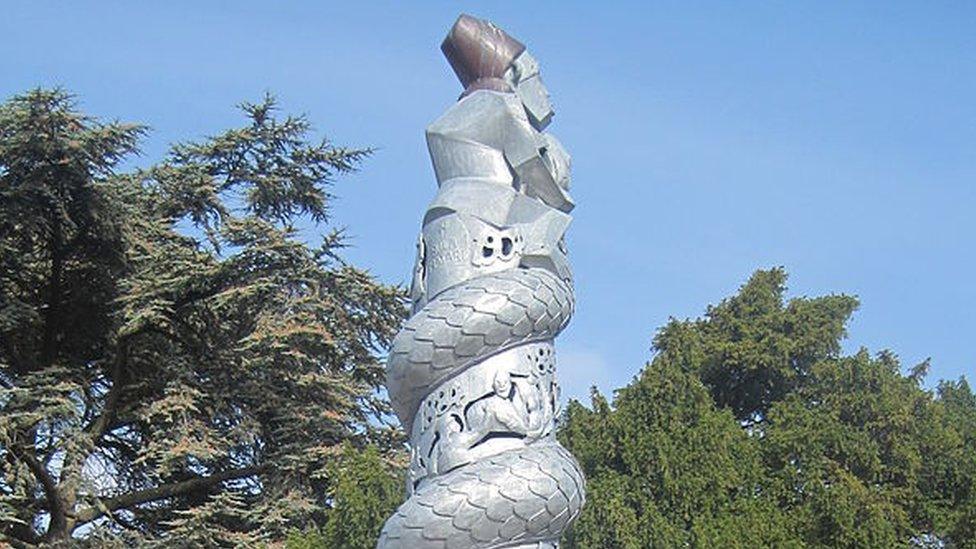
An obelisk in St Asaph honouring Stanley "needs to better reflect today's climate", a councillor said
Earlier, St Asaph city councillors voted unanimously to keep its obelisk monument to Stanley, but agreed to set up a working party to decide on whether to amend the accompanying information about him.
Elen Lewis, who led the St Asaph petition signed by 1,100 people, told a meeting of St Asaph city councillors his links to genocide in Congo should be acknowledged.
She said her education about Stanley had not presented the "two sides" of his story, referring only to his heroic exploits.
Councillor Peter Scott said the monument should stay but "needs to better reflect today's climate".
He added that a study of Belgian archives suggested Stanley had left the employ of Belgian King Leopold II about eight years before the killings took place in the country's former colony.

More on George Floyd's death
VIEWPOINT: Tipping point for racially divided nation
TIMELINE: Recent black deaths at hands of police
BACKGROUND: Five pieces of context to understand the protests
CRIME AND JUSTICE: How are African Americans treated?
- Published15 June 2020

- Published12 June 2020

